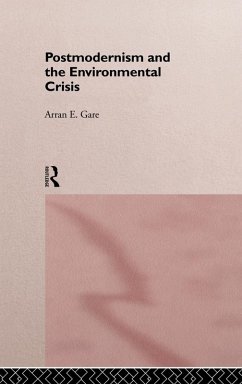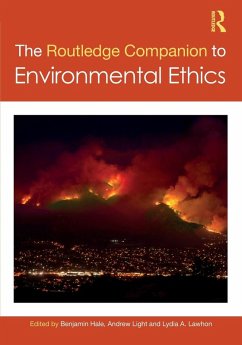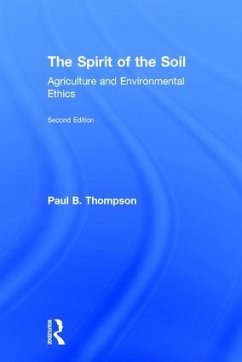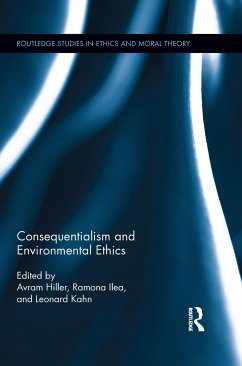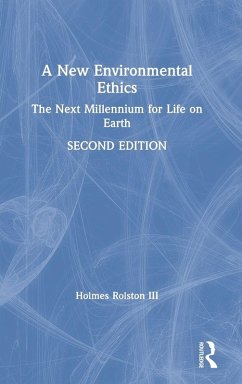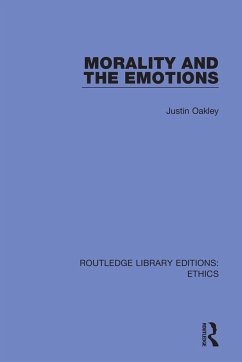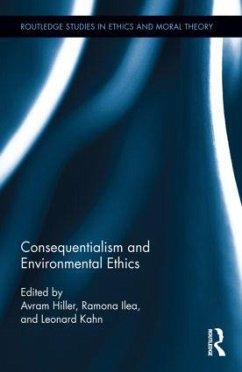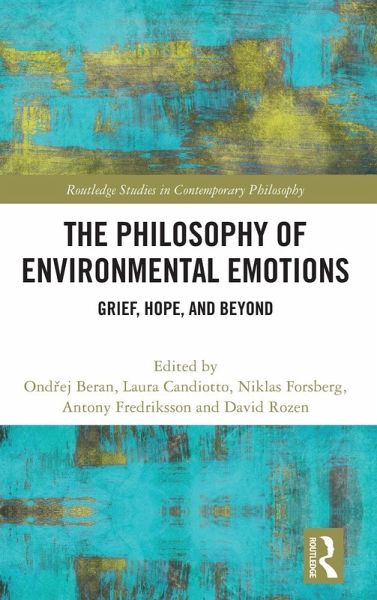
The Philosophy of Environmental Emotions
Grief, Hope, and Beyond
Herausgegeben: Beran, Ondrej; Candiotto, Laura; Forsberg, Niklas; Fredriksson, Antony; Rozen, David
Versandkostenfrei!
Versandfertig in 1-2 Wochen
170,99 €
inkl. MwSt.
Weitere Ausgaben:

PAYBACK Punkte
85 °P sammeln!
This volume presents new philosophical perspectives on environmental emotions. It explores the motivating nature of emotions such as anger, grief, and hope in relation to the current climate crisis.Many of our emotional responses to the climate crisis take a distressed form like anxiety, despair, or grief. However, these emotions almost always coexist with hope, a drive toward action, or a strengthened sense of relationality and belonging. This book explores the different levels at which these tensions take place. Part I discusses the conceptual and linguistic notions we use to make sense of o...
This volume presents new philosophical perspectives on environmental emotions. It explores the motivating nature of emotions such as anger, grief, and hope in relation to the current climate crisis.
Many of our emotional responses to the climate crisis take a distressed form like anxiety, despair, or grief. However, these emotions almost always coexist with hope, a drive toward action, or a strengthened sense of relationality and belonging. This book explores the different levels at which these tensions take place. Part I discusses the conceptual and linguistic notions we use to make sense of our ecological predicament. Part II looks at the embedded dimension of our emotions: how we feel about the climate crisis as members of our communities and how our emotions are interconnected with what we do and how we work in and for our communities. Several chapters in this section explicitly discuss hope. Finally, Part III has a phenomenological and existential focus: it explores the nature of the rootedness and how it shapes our emotional experiences during the climate crisis.
The Philosophy of Environmental Emotions will appeal to scholars and graduate students working in environmental philosophy, philosophy of emotion, and environmental psychology.
Many of our emotional responses to the climate crisis take a distressed form like anxiety, despair, or grief. However, these emotions almost always coexist with hope, a drive toward action, or a strengthened sense of relationality and belonging. This book explores the different levels at which these tensions take place. Part I discusses the conceptual and linguistic notions we use to make sense of our ecological predicament. Part II looks at the embedded dimension of our emotions: how we feel about the climate crisis as members of our communities and how our emotions are interconnected with what we do and how we work in and for our communities. Several chapters in this section explicitly discuss hope. Finally, Part III has a phenomenological and existential focus: it explores the nature of the rootedness and how it shapes our emotional experiences during the climate crisis.
The Philosophy of Environmental Emotions will appeal to scholars and graduate students working in environmental philosophy, philosophy of emotion, and environmental psychology.





